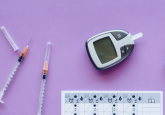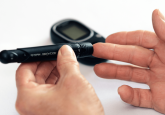Potential cell therapy for type 1 diabetes: novel data from phase I/II clinical trial

Vertex™ (MA, USA) has presented novel data of a phase I/II clinical trial of VX-880, a stem cell-derived pancreatic islet cell therapy for Type 1 diabetes (T1D) at the American Diabetes Association (ADA) 82nd Scientific Sessions (June 3–7 2022, LA, USA).
T1D is an autoimmune disease where the body attacks the insulin-producing islet cells in the pancreas, resulting in a loss of insulin production and impairment of blood glucose control. As a result, this causes high blood glucose levels; over time, this can result in kidney disease, eye disease, heart disease, stroke and nerve damage, and can be fatal. Current treatment options are limited to the management of symptoms with insulin and do not address the underlying causes of the disease.
Cellular replacement therapy of pancreatic islet cells therefore represents a promising potential solution to address the underlying causes of T1D. VX-880 is an investigational allogeneic stem cell-derived fully differentiated, insulin-producing islet cell therapy that is currently being evaluated in phase I/II clinical trials in T1D patients with impaired hypoglycemic awareness and severe hypoglycemia.
The phase I/II multi-center, single-arm open-label study is divided into three parts with the aim to determine the safety and efficacy of VX-880. In part A, the first two patients received half the target dose, in part B five patients will receive the full target dose and in part C will involve concurrent dosing at the full target.
Previous data from part A showed that both patients achieved glucose-responsive insulin production, improvements in glycemic control and reductions in exogenous insulin requirements.
Novel data recently presented from part A at the conference demonstrated that VX-880 was generally well-tolerated in all patients and that most adverse events were mild to moderate. Patient 1 showed blood glucose time-in-range change from 40.1% on 34 units per day of exogenous insulin at baseline to 99.9% and insulin independence at day 270. Patient 2 showed blood glucose time-in-range change from 35.9% on 25.9 units per day of exogenous insulin at baseline to 51.9% with a 30% reduction in exogenous insulin use at day 150.
“The glucose time-in-range data presented today at ADA demonstrate the remarkable glycemic control that can be achieved after treatment with VX-880,” noted Bastiano Sanna, Executive Vice President and Chief of Cell and Genetic Therapies at Vertex. “Elevations in blood sugar are important to control, as are fluctuations over time, as both increase the risk of complications in patients with T1D. The first two patients treated with VX-880 have not only achieved improved HbA1c and decreased insulin requirements, but also higher time-in-range. Taken altogether, these data provide further evidence of the potential for VX-880 as a functional cure for people living with T1D.”
“The potential impact of this treatment on patients cannot be overstated,” said James Markmann, Professor of Surgery and Chief of the Division of Transplant Surgery at Massachusetts General Hospital (USA), who treated Patient 1. “This study shows a significant leap forward in the potential treatment of patients with type 1 diabetes.”





